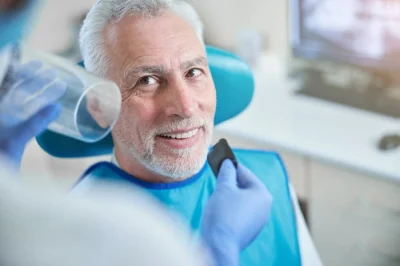How to Choose Laser Skin Resurfacing
Warning: Undefined variable $post in /home/dietofli/public_html/wp-content/plugins/code-snippets/php/snippet-ops.php(584) : eval()'d code on line 3
Warning: Attempt to read property "ID" on null in /home/dietofli/public_html/wp-content/plugins/code-snippets/php/snippet-ops.php(584) : eval()'d code on line 3
The estimated reading time is 3 minutes
Warning: Undefined variable $post in /home/dietofli/public_html/wp-content/plugins/oxygen/component-framework/components/classes/code-block.class.php(115) : eval()'d code on line 3
Warning: Attempt to read property "ID" on null in /home/dietofli/public_html/wp-content/plugins/oxygen/component-framework/components/classes/code-block.class.php(115) : eval()'d code on line 3
A Younger Skin
Laser skin resurfacing is a procedure that helps the skin look younger and healthier by getting rid of wrinkles, blotches, scars or lines. It is particularly useful for aging skin, people with acne, or people who have spent too much time in the sun. Laser skin resurfacing in San Francisco can be done alone, or along with other cosmetic surgeries. The skin is removed layer by layer with accuracy, and as it heals, new skin cells form, giving the skin a tighter-looking, younger, and healthier appearance. There are different ways of performing laser skin resurfacing, depending on the level of skin problems the patient is facing. One has to know enough about the procedure to be able to decide which method is right for them.
Skin Type and Problem
The first thing a prospective patient has to do is to determine if they are a good candidate for the procedure. They need to look at their skin type and specific problem they have to know if laser skin resurfacing can be an effective solution. Laser skin resurfacing can set the clock back in terms of its effects but one has to keep in mind that it is not a permanent solution for skin problems. However, the effects can last for several years.
For instance, in darker skins, the additional pigmentation will absorb more heat from the laser beam and cause discoloration and blistering. If one's skin scars easily, they may also not be a good candidate for the procedure. Active acne may not tolerate the process well and will present dissatisfactory results. Laser skin resurfacing is only good for minor scars, sun-damaged skin, liver spots, some birthmarks, and minor wrinkles. (1)
Medical History
An individual's medical history can negatively affect the process of laser skin resurfacing. One's medical background is a significant factor in how the procedure works for a patient as it affects how the skin tolerates the laser beams. Laser skin resurfacing is ideal for patients who have no current or past skin problems such as connective skin disorder.
If a patient is on medication, they should consult with a doctor to find out if they are good candidates for the treatment or if those medications will cause complications. Oily skin is more likely to scar after the procedure. Acne can increase the risk of infection, thus, although it can be treated by the procedure, the risks of complications are higher. Smoking should be avoided as it can prolong recovery.(2)
Consultation
Before scheduling for a procedure, one should make an appointment for a consultation. They need to select a surgeon based on experience and expertise rather than hearsay. An ideal doctor should be a member of the American Society for Aesthetic Plastic Surgery. Discuss with the doctor previous skin conditions including allergies and surgeries, as well as what one's expectations are in terms of skin improvement and recovery.
Additionally, one should request to see before and after photographs of previous patients, especially those who had similar skin problems. Moreover, the patient should be prepared to ask about the possibility of scarring and other risks involved with the treatment. Lastly, the cost of the procedure needs to be talked about, and the instances in which insurance applies. One should also inquire about financing as there may be a payment plan offered by the doctor.














